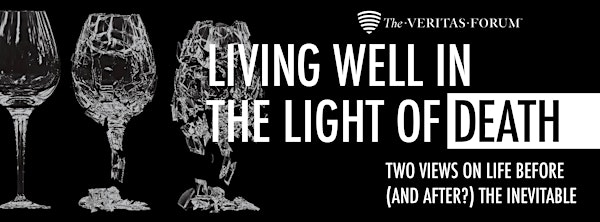
Yale Veritas Forum
Date and time
Location
Battell Chapel
400 College St New Haven, CT 06511Description
Join us for a conversation between Dr. N.T. Wright and Dr. Shelly Kagan on
"Living Well in Light of Death: Two Views on Life Before (and After?) the Inevitable".
Come and listen to world-class scholars NT Wright and Shelly Kagan engage in a discussion on the topic of "Living Well in Light of Death: Two Views on Life Before (and After?) the Inevitable". The discussion will be moderated by Lydia Dugdale, MD, Assistant Professor at the Yale School of Medicine.
About the presenters
N.T. Wright
Author, Research Professor of New Testament and Early Christianity at St. Mary's College, University of St. Andrews
N. T. Wright is the former Bishop of Durham in the Church of England and one of the world’s leading Bible scholars. The author of over sixty books ranging from scholarly studies to books for a more popular audience, Wright’s audiences range from viewers of ABC News and The Colbert Report to attendees of various scholarly and ministry conferences, such as the Society of Biblical Literature to Duke Divinity School Pastor’s Conference and numerous other speaking and teaching engagements. Born in 1948, Wright’s first degrees were in Classics and Theology from Exeter College, Oxford. He studied for the ministry at Oxford University’s Wycliffe Hall and was ordained as a priest in 1976.
Shelly Kagan
Clark Professor of Philosophy, Yale University
Dr. Shelly Kagan is the Clark Professor of Philosophy at Yale University and the former Henry R. Luce Professor of Social Thought and Ethics.
Since receiving his Ph.D from Princeton in 1982, he has written numerous books, expounding his theories on topics such as judging “right” from “wrong,” the concept of intrinsic value, moral obligations and individual rights. His book The Limits of Morality critiques so-called ordinary morality, or the view that there are limits to what morality can impose on humans, defending the doctrine of classical utilitarianism, which holds that people are morally obliged, without limit, to do as much good as they can.